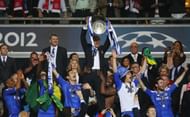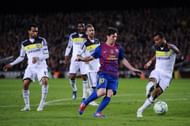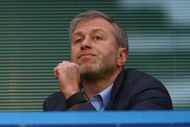
Chelsea Football Club has grown rapidly over the last few years into one of the best and most successful clubs in England. In spite of being based in London, the club has a massive overseas fanbase thanks to the Premier League's expansion into one of the most-watched sports competitions in the world.
The club was established in 1905 and enjoyed almost a century of mediocrity with short spells of success in the early 1950s and late 1960s. This would all change in 2003 when Chelsea was sold by Ken Bates to Roman Abramovich. Since then, the club has won 16 major trophies, including 5 Premier League titles, 4 FA Cups and the Champions League.
Unfortunately, success comes with a price, and in recent years the club has had no end of hatred directed its way by football fans. The club has repeatedly come first in polls of the most hated club in England and has had several stereotypes levelled against them.
It doesn't help that the likes of Jose Mourinho, John Terry and Diego Costa have played such large roles in the club's ascension, with each of three being portrayed as pantomime villains in the media at one point or the other.
However, there are also some good qualities about Chelsea that have surfaced since Abramovich's takeover, namely their never-say-die attitude and in recent years, some scintillating football. The following is a list of things that come to mind when the average person thinks of Chelsea Football Club.
#5 Youth Academy

Chelsea has invested heavily in youth over the last decade, building a successful youth academy that has won the FA Youth Cup six times since 2010. However, the academy has divided opinion among football fans, with some(mostly Chelsea fans) praising it as a temple of football studies and an academy to rival the likes of the La Masias of the world.
Others(mostly Phil Neville) have likened it to a travel agency, sending young players out on loan to exotic locations year after year until they are sold on.
The truth, as always, lies somewhere in the middle, but one thing that neither side can disagree with is that Chelsea's youth academy is immensely profitable. The likes of Nathaniel Chalobah, Nathan Ake, Bertrand Traore and Dominic Solanke were all sold for a profit by Chelsea in the 2017 summer transfer window.
In recent years very few players have managed to successfully integrate themselves into the first-team and even when they have, they have done so for short spells. The likes of Ruben Loftus-Cheek and Ryan Bertrand have enjoyed exceedingly short spells in the first-team before being sent back out on loan.
Chelsea currently have the chance to prove the efficacy of their youth academy with Andreas Christensen, who is currently on the verge of becoming a regular first-team player. The Danish centre-back spent two years at Borussia Monchengladbach before getting this opportunity and has impressed in recent performances, even keeping David Luiz out of the Chelsea line-up.
Also read: Top 10 players destroyed by Chelsea
#4 Racism

Chelsea is located in a predominantly white and affluent neighbourhood of London and fans of the club have been associated with hooliganism and racism for several years. Chelsea's hooligan firm has had ties to white supremacist organisations like the National Front and Combat 18 in the past.
Racism is far from a thing of the past when it comes to British Chelsea fans who have clashed with the law on multiple occasions. In a recent incident that took place before a Champions League game between Paris Saint Germain and Chelsea, a black commuter was pushed out of a Paris Métro train by Chelsea fans.
The fans in question were filmed chanting slogans like “We’re racist, we’re racist, and that’s the way we like it.” Four men were indicted following the incident and the club publicly condemned the actions of the fans.
Another fairly recent and prominent issue took place in 2011 when Queens Park Rangers defender Anton Ferdinand accused Chelsea captain John Terry of using racial slurs during a match.
The incident grew into a major scandal and lip-readers were brought in to ascertain what John Terry had been said. After an extensive investigation into the matter, John Terry was found guilty and fined by the Football Association.
Also read: 5 ways how FIFA should actually tackle racism in football
#3 Tenacity

The Chelsea sides that have won titles in the last few years have been far from the best in the world, and at times the club has seemingly been propelled by nothing more than determination and resolve.
The never-say-die attitude was first instilled in the squad by a certain Portuguese manager named Jose Mourinho. Mourinho took over a squad that had won precious little before that season and led them to two successive Premier League titles.
In spite of Mourinho's unceremonious departure from the club after his first sting, the tenacity lingered on and has come to the forefront many times since then. It has perhaps been most evident in their Champions League victory of 2012 where Chelsea defied all odds to be crowned champions of Europe.
The Blues successfully overturned a 3-1 deficit to beat Napoli, played a memorable two legs against Barcelona and then beat Bayern on penalties to win Europe's highest honour.
#2 Parking The Bus

In Mourinho's first spell in charge of Chelsea it became clear that the club would be run in an exceedingly pragmatic manner. Mourinho applied his own unique brand of no-nonsense thinking and stressed on defensive stability to an extent where the team as a whole began to play defensive-minded football.
This has worked exceedingly well for Chelsea in the past, but the tactic often results in slower and more laborious football, with every inch being fought for. Fans who were used to watching a more free-flowing and attacking football deemed the approach to be boring and lacking in spirit.
This defensive football was taken to a whole different level by the Champions League winning Chelsea side in 2011-12, specifically in the two legs against Barcelona. Chelsea were the underdogs going into the match, with Barcelona having significantly more talented players. However, Chelsea, under Roberto Di Matteo, locked down their defence during the two matches, with only Didier Drogba anywhere close to the opposition half.
Chelsea withstood a barrage of attacking moves to win the match, but their tactics were called into question. The Blues repeated this manoeuvre against Bayern Munich in the final and since then, they have been strongly associated with 'Parking the Bus,' a derogatory term for their ultra-defensive tactics.
#1 Roman Abramovich's

The club has seen a massive change in fortunes since it was acquired by Roman Abramovich, whose deep pockets played a large part in making Chelsea's transformation possible. The Russian oligarch pumped large amounts of his own money to the club and invested heavily in the infrastructure of the club. While this has helped the club no end, it has also led to the attribution of Chelsea's success with the financial clout of their owner.
Fans of other clubs have called out Chelsea for 'buying success' for several years now. Transfers like that of Arjen Robben have provoked the ire of aforementioned fans because they came during a time when clubs focused on bringing forth talented footballers from their own academies.
Another aspect of Roman Abramovich's spending has been that the club began administering itself like a business. A revolving door policy was put in place which meant that managers who did not meet expectations would be promptly fired and replaced.
This would eventually become the way that all clubs handled their business, but in the years of good old Sir Alex Ferguson, it seemed ludicrous to think that the manager's job was as fleeting as Chelsea made it out to be.
